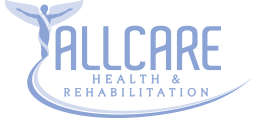Channeling Relief
Acupuncture is a fascinating medicine developed in ancient China and adopted by many other countries in Asia. The flow of “Ki energy” through the
body is believed to occur along specific pathways. These pathways are referred to as “meridians” or channels. In this procedure, an acupuncturist treats the patient by placing small sterile needles in certain areas along the pathways. Although modern science cannot fully explain how acupuncture works, we can safely say that it can produce certain physiological effects and can be useful in the treatment of many ailments.
What Can Acupuncture Treat?
For many centuries acupuncture and traditional Chinese medicine were the only medical systems in ancient China and Japan. As a result, these medicines were used as a complete system of health care. Today, we have the advantage of modern medical therapies. But while these therapies have their own strengths, like all things, they also have limitations.
Fortunately, acupuncture and herbal medicine are very useful additions to standard medical therapies and are proving to be useful in many clinical studies sponsored by the National Institute of Health. Acupuncture has been beneficial in the treatment of such problems as chronic pain, chemical addiction, allergies, headaches, the side effects of pregnancy, Asthma, and many other ailments.
Does Acupuncture Hurt?
This is probably the most frequently asked question and it is one that poses the greatest concern for many who are considering acupuncture. The needles used in acupuncture are far thinner than those used for injections. They are so thin, in fact, that little to no pain or sensation is ever felt during insertion. By contrast, most patients report deep and pleasant feelings of relaxation with acupuncture. The Japanese acupuncture practiced at ALLCARE HEALTH & REHABILITATION is among the most gentle and pain free forms of acupuncture in existence.
